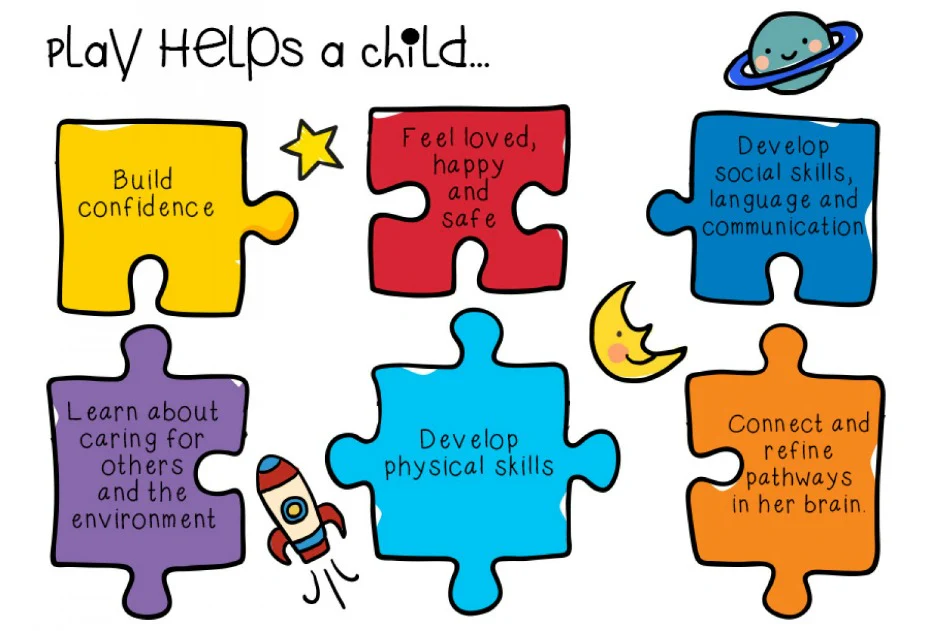Emotional intelligence (EQ) is a crucial skill that can have a profound impact on a child’s ability to succeed in school, form positive relationships, and handle challenges with resilience. Unlike IQ, which focuses on cognitive abilities, EQ involves recognizing, expressing, and managing emotions effectively. Here’s a comprehensive guide on why emotional intelligence matters for children and age-appropriate strategies to nurture EQ from a young age.
Why Emotional Intelligence Matters for Children
Emotional intelligence provides children with the tools they need to understand their own emotions and the emotions of others. With a high EQ, children are better equipped to:
- Build positive relationships with peers and adults
- Manage stress and cope with frustration
- Resolve conflicts and make thoughtful decisions
- Develop empathy and compassion for others
By fostering EQ early in life, parents and educators can help children become well-rounded, emotionally balanced individuals who can thrive both personally and academically.
Key Components of Emotional Intelligence in Children
- Self-Awareness: Recognizing one’s own emotions and how they affect thoughts and behavior.
- Self-Regulation: Managing emotions, controlling impulses, and adapting to changing circumstances.
- Motivation: Using emotions to stay focused and persistent in achieving goals.
- Empathy: Understanding and sharing the feelings of others.
- Social Skills: Navigating social interactions, building relationships, and handling conflict constructively.
Age-Appropriate Strategies for Fostering EQ
1. Infants and Toddlers (0-3 Years): Building Emotional Foundations
During infancy and toddlerhood, children are just beginning to experience and express emotions. At this stage, adults can help by labeling emotions, responding to their needs, and establishing trust.
Strategies:
- Label Emotions: Use simple language to label your own and your child’s emotions. For example, say, “You seem happy!” or “I can see you’re feeling upset.”
- Model Calm Responses: When toddlers display intense emotions like frustration or anger, stay calm and offer comfort. Your response shows them how to manage emotions.
- Encourage Self-Soothing: Offer tools like a favorite blanket or a soothing activity to help children calm themselves. This teaches them to find comfort independently over time.
2. Preschoolers (3-5 Years): Learning to Express and Understand Emotions
Preschool-age children are more verbal and start to engage in social play. This stage is a critical time to teach children how to recognize and express emotions while also developing empathy.
Strategies:
- Emotion Vocabulary: Expand their emotional vocabulary with words like “excited,” “frustrated,” and “disappointed.” Read books about emotions and ask questions like, “How do you think this character feels?”
- Practice Empathy: Encourage empathy by asking questions about others’ feelings. For instance, if a friend is sad, ask, “How do you think they feel? How can we help them?”
- Role-Play Scenarios: Use dolls or puppets to role-play situations that might trigger strong emotions, such as sharing toys or waiting turns. Discuss different ways to handle these situations.
3. Early Elementary (6-9 Years): Managing Emotions and Building Empathy
At this stage, children start to experience more complex emotions and face new social situations in school. They benefit from learning how to identify triggers, use coping strategies, and resolve conflicts with peers.
Strategies:
- Teach Coping Skills: Introduce techniques like deep breathing, counting to ten, or squeezing a stress ball when feeling overwhelmed.
- Encourage Perspective-Taking: Help them understand other people’s perspectives. If they have a disagreement, ask them to consider the other person’s point of view and discuss ways to compromise.
- Praise Empathy and Kindness: Recognize and praise empathetic behavior, like helping a friend who feels left out. Positive reinforcement strengthens EQ-related behaviors.
tegrating these strategies into everyday interactions, parents, teachers, and caregivers can play an essential role in nurturing emotionally intelligent children who are prepared to thrive in all areas of life.
